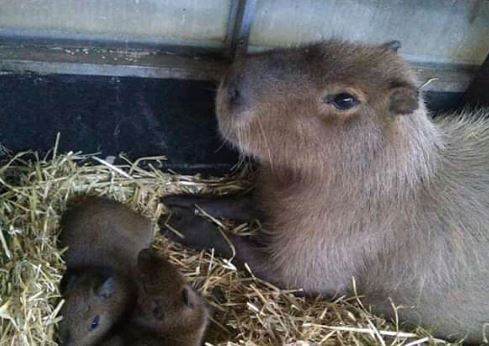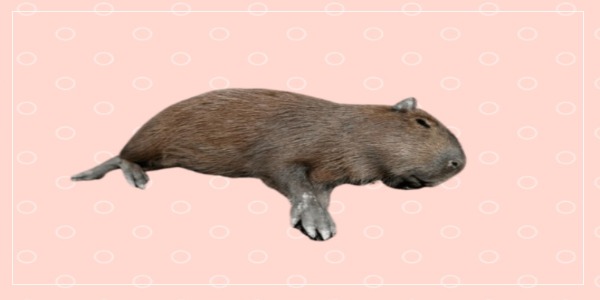Why Is My Capybara Not Eating?
If you’re like me, you probably hate it when your pet is sick. It’s frustrating! You try to give them all the love in the world and do everything for them, but you can’t get them to eat if they don’t want to. So here are some reasons why your pet capybara may not be eating:
1. He may have worms or other parasites that are causing pain when eating food.
2. His teeth are rotting away from a lack of proper dental care (a common problem with older capybaras). This can cause problems with chewing food properly which results in loss of appetite. If this happens to you, make sure your vet checks for tooth decay before giving any antibiotics or anti-inflammatory medication.
3. They could have an infection somewhere inside their body that needs treatment like a urinary tract infection or kidney stones which can cause weight loss due to lack of appetite or vomiting caused by the pain associated with these conditions. Make sure your veterinarian checks for infections before giving any antibiotics or anti-inflammatory medication!
4. For female capybara, she might be pregnant or in her heat period.
5. She has a full belly of cecotropes
6. There is something wrong with the food you’re giving her
7. You’re offering her too much food at once and she’s not hungry yet
The first thing to do is always check that there isn’t a medical reason for your pet to stop eating. If your capybara has diarrhoea or constipation this can cause him to eat less. A vet should be able to help treat this.
How Often Do Capybaras Eat?
Capybaras have a very high metabolic rate, which means they need to eat a lot. They eat a lot of grass hence their large stomach. The grass is not very nutritious, so they need to eat large amounts to get enough nutrition from it. However, the grass is also very fibrous and needs to be chewed for a long time before it can be swallowed.
This means that capybaras spend most of their day eating, chewing and ruminating (a second digestive process where the food is regurgitated and chewed again). When you see a capybara sitting or lying down with its eyes closed, it’s usually not sleeping but rather digesting its food.
Capybaras spend most of their days grazing on grasses and aquatic plants. In addition to this, they may also eat berries, fruit, or tree bark when available. They are grazers by nature and prefer to browse on grasses rather than graze on them as cattle and horses do.
Capybaras have a very large, complex digestive system. They eat, digest and process their food slowly. They are not always hungry in the way that other mammals are.
Watch this amazing video
The capybara’s stomach is divided into several compartments which account for its large size. The first compartment is called the rumen and it contains microbes that help break down plant matter into useful sugars and amino acids. These microbes also produce enzymes called cellulases which further break down plant material into simple sugars that can be used by the body as energy sources like glucose or fructose (simple sugar).
The second compartment is called the reticulum where food is stored temporarily before being passed through to the next compartment called the omasum which contains bacteria that help break down fibrous materials like cellulose and lignin found in plants such as grasses.
How Much Food Does a Capybara Eat In a Day?
Every animal is different. They have different dietary needs. An older capybara will eat more than a younger one. The same is true for a bigger capybara. A capybara that is very active will eat more than a lazy one.
Capys tend to eat 3-6% of their body weight each day, but this can vary widely depending on the time of year and how much activity they are getting. Our average size adult capybaras weigh about 60 lbs so they eat about 2 lbs of food each day, or about the size of a loaf of bread.
A capybara’s diet should be high in fibre and low in protein and sugar. In the wild, they will eat a wide range of aquatic and semi-aquatic plants as well as fruit that falls from overhanging trees. To keep them healthy, captive capybaras should have lots of grass available to them at all times.
They also need plenty of freshwaters to drink. A capybara who is kept outdoors will get all the water it needs by drinking from its swimming pool or bathtub. If it doesn’t have access to water outdoors, it will need to be given fresh water twice a day.
What Should I Do if My Capybara Is Not Eating?
If your pet capybara suddenly stops eating, then you should immediately take the following steps to salvage the situation.
1. A few capybaras are not eating because they are sick or have a digestive problem. So the first thing to do is take your capybara to the veterinarian for a check-up.
2. If there is no medical reason why your capybara is not eating, then it might be a behaviour issue. If this is the case, it might be because your pet has become too dependent on you, and doesn’t want to eat without you around.
3. Another possibility is that your pet has been allowed to become overweight, and simply isn’t hungry because it can’t digest properly anymore. In this case, you need to put it on a diet, but first, you need to determine what its ideal weight should be.
4. Finally, there may be nothing wrong with your capybara at all, and it may simply not like what you are offering as food. This could be because the food isn’t fresh enough (such as lettuce), or because the presentation of the food is boring and unappetizing for the animal (such as dry pellets).
Do Capybara Lose Interest in Their Food?
I’m not sure if they lose interest in their food, but they do like to eat. They can graze all day long and when they are finished, they are still hungry.
I know that this sounds like I’m joking but look at a pig. Pigs have no problem eating on a regular basis. Capybaras have bigger stomachs than pigs and their digestive system is much more efficient. I’ve read accounts of capybara only having to defecate once every few days because their body has no problem breaking down everything that goes into it.
If you give capybara access to all the food they want, it will help them stay healthy. It’s very easy for rodents to become obese and unhealthy due to the amount of food available. If you keep them healthy by feeding them plenty of nutritious food, then they will be able to scavenge for extra food when they want to eat more.
It’s important that you don’t feed them too much at once or allow them to become overweight. You should never give them any human food either because it could cause digestive problems or even death in some cases.
What Is Capybara Favorite Food?
Capybaras are herbivores that graze on grasses and aquatic plants, as well as fruit and tree bark. They have very strong teeth and jaws to help them chew through the tough fibres of plants.
The capybara’s stomach can hold up to 4 pounds of food at any one time, and they eat a lot. They can consume 8-10% of their body weight in grass and plants per day.
Capybaras have a tough time digesting cellulose (a plant fibre) because they don’t have the bacteria in their stomachs to break it down as a cow does. So they must eat a lot of food to get all the nutrients they need from plants.
What Food Do Capybaras Hate?
If you have a capybara as a pet, you have to consider a lot of things. Capybaras are friendly animals and they are easy to tame. However, there is one thing that can make your pet capybara feel terrible: food.
Because of their size, capybaras eat a lot. They can eat for seven or eight hours in one day! They mostly eat grass, but some of them love bananas.
There are certain things that every capybara hates. They hate lettuce and nuts.
Ice cream
French fries
Hot sauce
Pizza
Peanut butter and jelly sandwiches
Apple pie
What Do You Feed a Capybara?
Do you have a capybara as your pet? Then you must have been wondering what exactly do you feed a capybara. Capybaras can eat just about anything, but you can’t just feed them any food. You certainly don’t want to give them any food that is unhealthy for them.
I didn’t know the proper diet for a capybara when I first got mine. For the first three months, I just fed it whatever I could get my hands on. It was doing fine, but then I found out that capybaras are herbivores and they should only be fed foods that are high in fibre and low in sugar and fat.
It was also recommended that they be fed alfalfa hay twice a day along with some fruits and vegetables. The hay helps keep its teeth trim and healthy. When I started feeding my capybara this way, its coat started to look better, too. It actually started to shine like that of a wild animal!
Just make sure to limit the fruits and vegetables to no more than 10% of the diet or else your pet will get diarrhoea from all the extra fibre. Also, avoid giving it any fruit seeds since these contain cyanide.
Capybaras can’t live without water because they need it to digest their food. Capybaras are semi-aquatic animals and spend a lot of time in the water. Even if you don’t have a swimming pool you should provide your pet capybara with a large water bowl or a kiddie pool filled with clean water. They will use the water to keep cool during hot weather and lie in it while they chew their cud (regurgitated food).
What Human Food Can Capybaras Eat?
Hay is an important part of a capys diet. I feed Timothy Hay which is high in fibre and low in protein. Capys also love to chew so give them a variety of branches and tree barks to help keep their teeth worn down.
This list gives you an idea of what I feed my capys on a regular basis. This is not an exhaustive list! They enjoy many different kinds of fruits and vegetables – use your imagination!
Grains & Legumes: Rice (cooked), Corn (cooked), Beans (cooked), Lentils (cooked), Wheat germ, Wheat bran
Vegetables: Carrots (raw/cooked), Celery (raw/cooked), Sweetcorn (cooked), Broccoli (raw/cooked), Cauliflower (raw/cooked)
Conclusion
If your Capybara is not eating and/or losing weight consult a vet. There could be a physical or emotional reason that affects their appetite. Also, there could be health issues, or the food you are offering could be the cause of the problem. Capybaras have a long and complicated digestive tract, and if it doesn’t work properly, this can affect appetite.
There can also be infections or tumours in their intestines which can decrease appetite. Sometimes the fact that they are being kept in an unfamiliar environment can result in decreased food intake as well. Bonding usually fixes these issues.

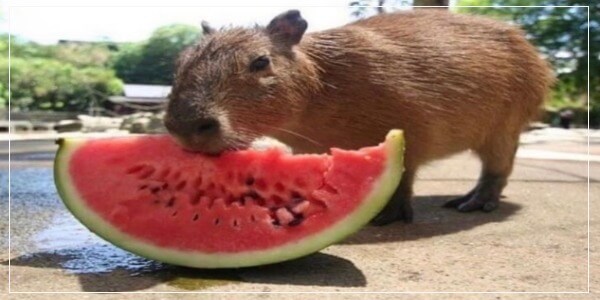
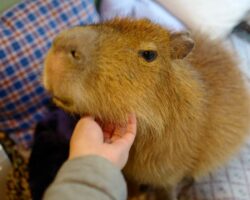
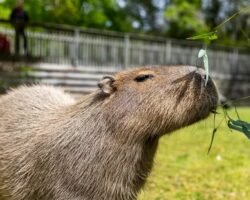

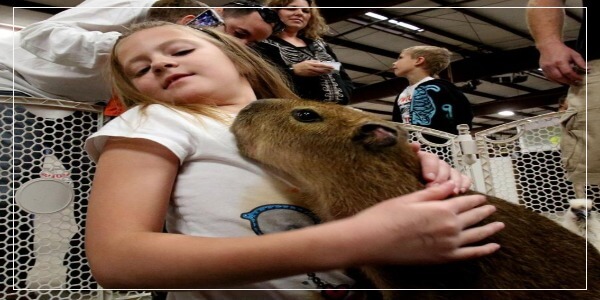
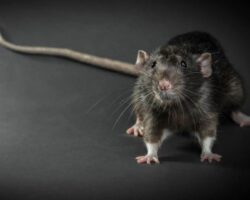
![Capybara Meat And Its Culinary Uses - [Every You Should Know] Capybara Meat & Culinary Uses](https://capybaratips.com/wp-content/uploads/2023/03/Capybara-meat-250x200.webp)
